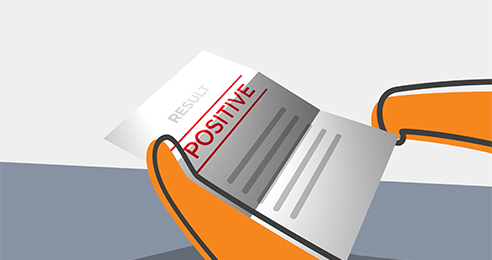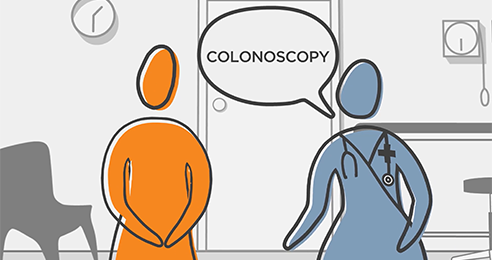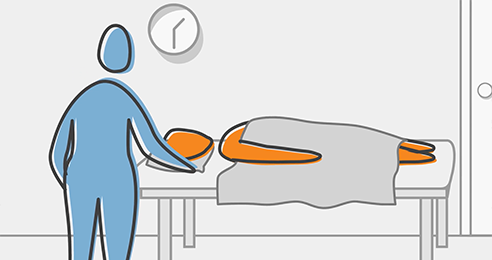A colonoscopy is the best way to investigate the cause of traces of blood found in your sample.
While a colonoscopy might seem daunting, you should not feel pain and can expect to recover within a day or two. It is a day procedure, but you'll need someone to drive you home afterwards, because you will still be affected by the sedation.
Prior to your colonoscopy, you may be asked to modify your diet and will be asked to drink a preparation liquid to help empty your bowels. This is important because it allows the specialist doctor to see the lining of your bowel more clearly and find any changes.
On the day of your colonoscopy, you'll be given a light sedation to make you feel sleepy and comfortable. A thin, flexible tube with a tiny camera attached, called a colonoscope, will be passed gently into your back passage.
Using the colonoscope, the specialist will look in your bowel for any changes and will generally remove any polyps that are found, as these may develop into cancer. Instructions will be provided to you about what was found during your colonoscopy and what to look out for after your procedure.
A clear colonoscopy means that no abnormalities or polyps were found. This usually means that you have a low risk of developing bowel cancer in the short term, and you can expect to be invited to participate in bowel screening again in the future.
If polyps are found, the doctor will usually remove them immediately and send them to a lab to be tested for any abnormal cells. If bowel cancer is detected, you'll be advised by your specialist about the best treatment for you.
The chance of a full recovery is high for cancers found at an early stage and most people will be able to return to their current lifestyle and activities after treatment.
Your doctor will discuss your result with you and any further testing or future screening required based on your individual case.



